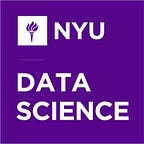Combatting Digital Misinformation: CDS’ AI, Misinformation, and Policy Seminar Series
This post is part of a series exploring CDS Seminars
In the rapidly evolving digital landscape, misinformation spreads like wildfire across platforms, often with harmful real-world consequences. To tackle this complex challenge, Swapneel Mehta, a CDS PhD alumnus and current Postdoctoral Associate at Boston University and MIT, launched the AI, Misinformation, and Policy Seminar Series. This seminar series provides a platform for researchers and practitioners to share insights on combating misinformation through the ethical use of technology and effective governance.
The series aims to bring together “doers” rather than just “thinkers.” In a recent interview, Mehta emphasized the value of showcasing applied work. “It’s very valuable to have those conversations,” he said. “When people come in and share stories about how they applied scientific tools, techniques, methods, systems, solutions, products — it teaches us something useful about how we could translate learnings from practice in academia.”
Mehta’s own research during his PhD at CDS exemplifies this applied approach. He studied the cross-platform effects of interventions, such as Twitter’s warning labels on potentially misleading tweets. “While platforms exist in silos, the effects don’t,” he explained. “Everything that one platform does affects discourse on another platform.”
The seminar series, which began in March 2023, has already featured several notable speakers and generated interest from a consistent audience. Upcoming talks will delve into the cutting-edge world of deepfakes, responsible AI governance, and social bots. Matyas Bohacek, a Stanford student, will discuss creating a photorealistic AI news anchor using only open-source tools and limited data. Lynnette Hui Xian Ng, a PhD candidate at Carnegie Mellon University, will explore the geopolitical narratives of social media bots. Kevin Fumai from Oracle will add a legal perspective to policy and compliance concerns surrounding AI.
As the world faces an unprecedented number of elections in the coming year, Mehta stresses the importance of these conversations. “Regulation is going to be a big part of the solution to these problems, and we need more conversations with the people leading applied work in order to inform the effective regulation of social media or AI,” he said. “That’s where these talks come in. Just talking about it in a precise, measurable, definable manner is very important, because AI, misinformation, and policy are three disparate fields that otherwise don’t come together easily.”
Earlier this year, the series featured Eric Brichetto, an independent open-source intelligence (OSINT) investigator and software engineer. In his talk, Brichetto demonstrated how an actor-focused OSINT approach can expose disinformation campaigns by mapping connections between influence operators. His case study traced a suspicious French politics website to a network of European entities engaged in coordinated propaganda, showcasing the power of this technique.
Through the AI, Misinformation, and Policy Seminar Series, NYU CDS is fostering a critical dialogue between researchers, policymakers, and industry leaders. By bringing together diverse perspectives and showcasing applied work, the series aims to develop more effective strategies for combating misinformation and promoting responsible AI governance in an increasingly complex digital world.
By Stephen Thomas
